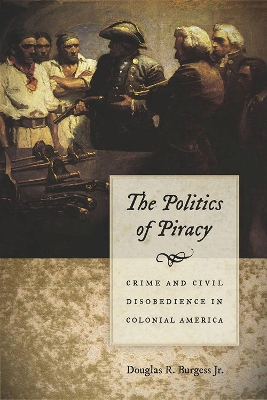The seventeenth-century war on piracy is remembered as a triumph for the English state and her Atlantic colonies. Yet it was piracy and illicit trade that drove a wedge between them, imperiling the American enterprise and bringing the colonies to the verge of rebellion. In The Politics of Piracy, competing criminalities become a lens to examine England's legal relationship with America. In contrast to the rough, unlettered stereotypes associated with them, pirates and illicit traders moved easily in colonial society, attaining respectability and even political office. The goods they provided became a cornerstone of colonial trade, transforming port cities from barren outposts into rich and extravagant capitals. This transformation reached the political sphere as well, as colonial governors furnished local mariners with privateering commissions, presided over prize courts that validated stolen wares, and fiercely defended their prerogatives as vice-admirals. By the end of the century, the social and political structures erected in the colonies to protect illicit trade came to represent a new and potent force: nothing less than an independent American legal system. Tensions between Crown and colonies presage, and may predestine, the ultimate dissolution of their relationship in 1776. Exhaustively researched and rich with anecdotes about the pirates and their pursuers, The Politics of Piracy will be a fascinating read for scholars, enthusiasts, and anyone with an interest in the wild and tumultuous world of the Atlantic buccaneers.
- ISBN10 1611685273
- ISBN13 9781611685275
- Publish Date 1 January 2015
- Publish Status Transferred
- Publish Country US
- Publisher University Press of New England
- Imprint ForeEdge
- Format Hardcover
- Pages 288
- Language English
